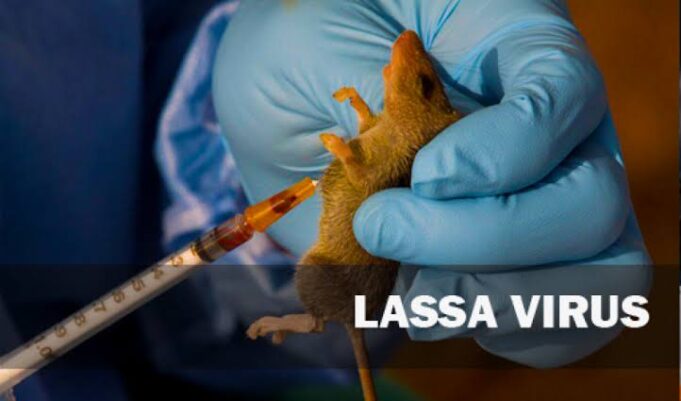No fewer than 20 healthcare workers have been infected as Nigeria battles a worsening Lassa fever outbreak, with 118 deaths recorded in the first quarter of 2025.
The Nigeria Centre for Disease Control and Prevention (NCDC) disclosed this via its website on Sunday, March 30, 2025.
The NCDC said between January and March 2025, 3,465 suspected cases were reported across 91 Local Government Areas in 33 states, with 645 cases confirmed.
It stated that the Case Fatality Rate (CFR) stood at 18.3 per cent, highlighting the severity of the outbreak.
The agency said the infection of frontline healthcare workers remained a major concern, with Ondo State reporting the highest number (eight cases), followed by Bauchi (four), Taraba (two), Gombe (two), and one case each in Edo, Ebonyi, Benue, and Ogun.
In response, the NCDC said it deployed Rapid Response Teams to 10 high-burden states – Kogi, Plateau, Ondo, Edo, Bauchi, Ebonyi, Taraba, Benue, Gombe, and Nasarawa – to support local outbreak management efforts.
It said due to the evolving nature of the outbreak, teams in Edo and Taraba States had their deployments extended by an additional 10 and seven days, respectively.
The NCDC disclosed that it also activated the Lassa Fever National Emergency Operations Centre (LF-EOC) at Response Level two to enhance coordination among Federal and state authorities, local government areas and development partners.
The NCDC said it equally distributed essential medical supplies, including personal protective equipment and treatment medications, to affected states.
Lassa fever kills NYSC member in Ogun
“Despite these measures, several challenges are hampering response efforts: the public health agency said they were delayed case detection due to weak community-level surveillance,” it said.
The agency listed some of the challenges as limited resources for treatment, contact tracing, active case search, manpower shortages at treatment centres and also late presentation of cases, as many patients resorted to self-medication or traditional remedies before seeking hospital care.
The NCDC Director-General, Dr Jide Idris, urged state governments to provide financial support for Lassa fever treatment and called on the private sector to contribute by supplying medical resources and supporting public health awareness campaigns.
Idris stated that while the NCDC and state governments were leading response efforts, the fight against Lassa fever required collective action from all Nigerians.
The NCDC boss added: “Preventing Lassa fever begins with individuals.
“We urge citizens to maintain good environmental hygiene, store food properly, and prevent rodents from entering their homes.”
He also advised healthcare workers to strictly adhere to infection prevention and control (IPC) measures to protect themselves while treating suspected cases.
Lassa fever is a viral hemorrhagic disease transmitted primarily through contact with the urine or faeces of infected rats.
It can also spread from person to person through bodily fluids, contaminated objects, or infected medical equipment.
Symptoms include fever, sore throat, headache, vomiting, muscle pain, and in severe cases, bleeding from the body openings.
- Diri: My government not against rallies in Bayelsa - April 2, 2025
- Tribunal affirms Okpebholo as Edo governor - April 2, 2025
- Wike approves employment of 34 resident doctors for 7-year training - April 2, 2025








